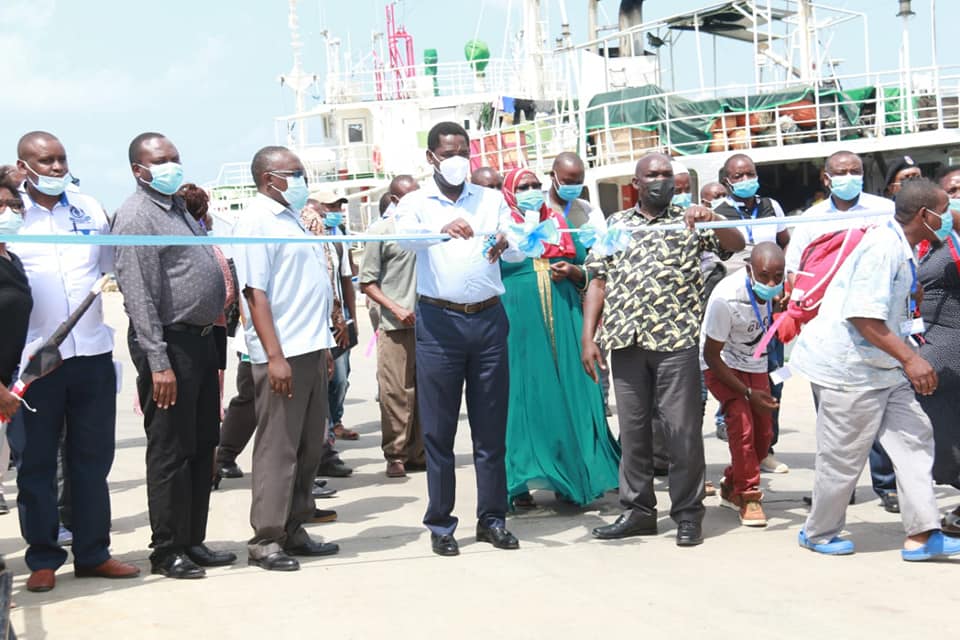Numerous fishermen, particularly those from the local area, disregard safety rules each time they go out to sea, leading to the loss of live...

Numerous fishermen, particularly those from the local area, disregard safety rules each time they go out to sea, leading to the loss of lives.
Although there is no precise information about the number of fishermen in Kenya who die at sea or on the lake each year, it is estimated that this number represents one percent of the world's fishing community.
Approximately 39 million sailors exist globally, making up 73 percent of all seafarers, as stated by Alan McCullan, coordinator of the International Fund for Fishing Safety.
Brian Mwaguza, chairman of the Mombasa Beach Management Unit (BMU) Network, stated that the majority of fishermen disregard safety protocols, resulting in a significant number of lives lost at sea.
During the unveiling of the Stella Maris training manual for fishermen on safety and the 2026-30 strategic plan in Mombasa on Thursday, he stated that the training will assist in saving lives.
"Our people often believe that trainings are too difficult for them and mainly intended for the Gen Z, relying on their experience to keep them safe at sea. It is this belief that their experience allows them to handle any situation at sea that causes problems when issues occur," Mwaguzasaid.
Stella Maris, a Catholic group offering spiritual, social, and practical assistance to sailors, fishermen, and their families, has created a program designed to educate Mombasa fishermen about workplace safety.
Stella Maris Kenya's chairperson and Mombasa Archbishop Martin Kivuva stated that the county possesses one of the largest ports in the region, and those involved in the blue economy must be supported to more effectively utilize the potential of the Indian Ocean.
Kivuva advocated for collaboration to guarantee the security of fishermen both at sea and on land.
"Our goal is to encourage our young people to be prepared, as there are numerous opportunities on the way," he said.
Margaret Masibo, the leader of the Stella Maris team, said that every fisher who goes out to fish should come back home feeling happy and safe.
She mentioned that although the area they serve is large and consumes resources, they are happy to have made a difference in people's lives.
"We are striving to decrease fatalities at sea. Currently, it stands at one percent, but we aspire for it to be zero. One percent is extremely high," Masibo stated.
She mentioned that all BMUs, in addition to training, will also be provided with safety equipment.
The chief officer for the blue economy, cooperatives, agriculture, and livestock, Roselyne Randu, stated that for a long time, the safety of fisherfolk has not been given priority.
This is regardless of their two-week journey at sea before returning to land.
"Today, we must guarantee the safety of every fisher individual who goes out to sea, irrespective of their position," Randu stated.
Statistical data indicates that one percent of fishermen who enter the sea do not return.
One lifetime is excessive since that life supports at least five dependents in some manner.
"Some get ill when they enter the sea, but they usually don't have doctors or medicine with them," Randu said.
She mentioned that the safety program will be specifically designed for fishers, as in most instances, seafarers receive training at the Bandari Maritime Academy, which could be too costly for local fishermen, particularly those who are older.
"In most instances, individuals focus on fish production while overlooking the well-being of the fishermen," Randu stated.
Raphael Akuku, the secretary of the Ugenya BMU in Siaya county, stated that protecting fishermen is essential for boosting the nation's economy as they play a crucial role in the blue economy sector.
The industry is currently estimated to account for approximately 2.5 percent of the GDP, generating $178.8 billion (around Sh23.3 trillion) each year and providing employment for roughly two million people.
Akuku mentioned that fishermen face many difficulties in the lake, such as storms, but they overcome all these challenges to ensure that Kenyans and people overseas have fish on their plates.
"Fisherfolk contribute to the economy and therefore should also be supported in terms of safety," he stated.
Instant Analysis:
Over 100,000 fishermen lose their lives at sea annually, as reported by the International Fund for Fishing Safety. Nevertheless, the actual figure might be higher since there is no reliable method to document all maritime fatalities. This is why IFFS coordinator Alan McCullan states that fishing is considered the riskiest occupation worldwide.



